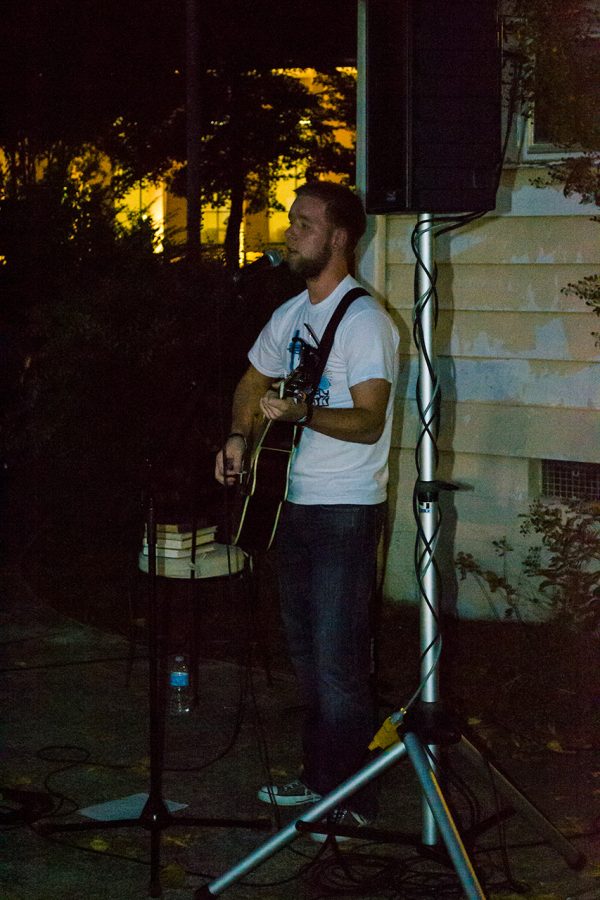Clothesline Project gives students chance to speak out against violence
October 25, 2012
The Clothesline Project, hosted by the Center for Women’s Studies Oct. 22, encouraged students from all walks of life to take a stand against anything, with an emphasis on violence. 2011 sparked the first year in several years that UNA participated in this national event, and the support this year was anticipated to be even greater.
The project began in 1990, when a group of women in Massachusetts longed to raise awareness about domestic violence and, taking influence from The Names Project AIDS Quilt, decided to hang story-telling T-shirts on a clothesline — something commonly associated with domestic housework.
At the Women’s Center, students passing by were welcomed from 9 a.m. to 3 p.m. to make shirts speaking out against their demons, whatever they may be.
“I’m not trying to be bitter,” said sophomore Katie Bagwell. “I’m just trying to get my point across.”
Bagwell’s T-shirt depicted hearts and lettering that said, “I walk funny, but it’s not funny – it’s Multiple Sclerosis.” After sharing her shirt, she was abruptly hugged and told, “You’re beautiful.”
The T-shirts ranged in colors, attitudes and topics, with everything from fighting obesity to fighting the memories of rape. The event welcomed all passers-by, including people who had never heard of the event before. One student, junior Jesse Reeves, was pulled from the sidewalk and told about the event.
“I was just passing through and wanted to know what it was about,” Reeves said.
Reeves later called over to a group of his friends also passing by, and they each made their own T-shirts.
Lee Brooks, a freshman, wasted no time with his T-shirt idea. He depicted people and cars to create a human trafficking image.
“It’s always been something that’s burned on my heart,” Brooks said. “It’s freaking terrible, and I’ve never been able to do anything about it until now.”
Brooks was not the only one to take the event seriously. Numerous other T-shirts accumulated on the clotheslines outside the Women’s Center, and dozens of students stopped to read some of the both heart-warming and heart-breaking phrases such as “I won’t be defined by what they did to me” and “I fight for my daughter.”
“It’s just great to see how many people feel the same way you do,” said Emily Kelley, coordinator for Women’s Studies, who stood by welcoming people to open up and consoling those who shed tears. “The T-shirts are free, the decorating is free and the messages can be about any kind of maltreatment.”
The event was a success for those involved, and they continue hoping to raise awareness about a diversity of issues, wearing their black T-shirts that adamantly declare, “If you’re not angry, you’re not paying attention.”



![Caleb Crumpton [COURTESY OF UNA SGA]](https://theflorala.com/wp-content/uploads/2024/07/caleb-crumpton-courtesy-of-SGA-425x600.jpg)






